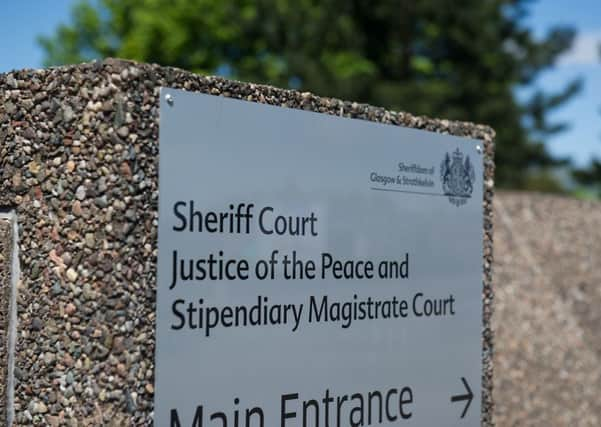Let us not forget that creditors have rights too


Most people are readily supportive of the promotion of human rights. It is unlikely that there would be as much support for the promotion of creditors’ rights, even though many creditors may well be humans too. Nevertheless, as one of the many custodians of the Scottish legal process, the Scottish Law Agents Society has drawn attention to a strange lacuna in the legal rights of creditors, with particular regard to the rights of creditors against the land and buildings owned by their debtors.
This may be highly frustrating to creditors who may well have few resources of their own, such as a single mother who has been deserted by her children’s father, who himself owns a substantial residential property but refuses to pay maintenance.
Advertisement
Hide AdAdvertisement
Hide AdMost legal systems, including England and Wales and the Scottish legal system of days gone by, provide an appropriate process for creditors to force the sale of the land and buildings belonging to a debtor who fails to pay the debt. This is not the case, however, with the Scottish legal system in 2016. On the face of it, there is no great problem. The Bankruptcy and Diligence etc (Scotland) Act 2007 introduces the remedy of land attachment. This provides for the creditor to register notice of the attachment of the debtor’s land and buildings in respect of the outstanding debt. If the debt is not paid within six months thereafter the creditor may apply to the Sheriff Court for a warrant to sell the attached property.
If the granting of such a warrant in the particular circumstances of the case would be unduly harsh, the Sheriff may suspend its effect for up to a year or even refuse it altogether.
Unfortunately, however, although this legislation was enacted by the Scottish Parliament, including the Scottish Ministers, in 2007, the Scottish Ministers have nevertheless seen fit not to bring these provisions into force, as authorised by Parliament so to do.
We have no information as to when, if ever, theypropose to carry out the will of the Scottish Parliament. In England and Wales the Charging Order Act 1979 provides the remedy which has not been brought into force in Scotland. While the 2007 legislation remains ineffective, creditors continue to have the benefit of the Adjudication Act 1672.
That Act set out quite clearly that “it shall be leisum to the Creditor to adjudge all or any right belonging to his Debitor in the same maner as he might have apprised the same Conforme to the act of Parliament 1661 anent the payment” so that any creditor who can find a 350-year-old solicitor who is fluent in the Scots mither tongue has a simple remedy, subject to the right of reversal by the creditor of the process, pending expiry of the subsequent ten years of the legal period.
While that legislation has been described by the Scottish Law Commission as “archaic and cumbersome” and as “rarely used in modern practice” it is fair to say that it was probably an effective process as designed for the large, landed estates of the 17th century. That, however, may be of little consolation to the frustrated creditor of the 21st century. It may be suggested that the creditor might obtain a bankruptcy or sequestration order against the debtor. That might be appropriate in some circumstances but not so in many other cases. It is a process which involves handing control over to the trustee in bankruptcy, who acts not for the creditor but for the general body of creditors. It is a public process, the proceeds of which have to be shared with other creditors and the costs of which might well reduce the funds available to pay the debt.
More particularly, in the example given, the bankruptcy process may well put the debtor out of business or saddle him with such ongoing financial restrictions that he will be unable to pay maintenance for his family in the future.
It is unarguable that the legal system of any modern property owning democracy should provide that assets, including the land and buildings of the recalcitrant debtor, should, subject to appropriate checks and balances to avoid undue harshness, ultimately fall to the disposal of the creditor for the payment of the debt. The question therefore has to be asked – why not in Scotland in 2016 ?
Michael Sheridan is secretary of the Scottish Law Agents Society